Just like Dorothy had to follow the Yellow Brick Road to reach her destination, you too must navigate a specific path to obtain a medical marijuana card in Delaware. You’ll need a qualifying medical condition and a doctor’s recommendation, but that’s just the beginning. You’ll also find yourself tackling an online application process, paying fees, and learning about the laws surrounding this treatment option. Remember, knowledge is power, and there’s much more to learn to keep this therapeutic resource within your reach.
Table of Contents
Understanding Delaware’s Medical Marijuana Laws
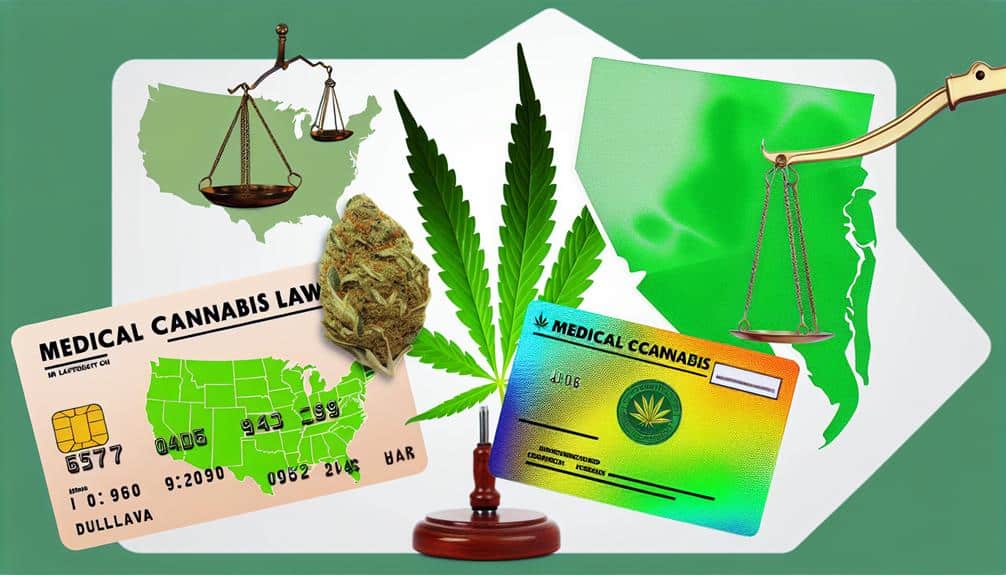
In light of Delaware’s evolving stance on medical marijuana, it’s crucial to understand the state-specific laws surrounding its use. The history of medical marijuana in this region, like many others, is marked by legal challenges and changes.
Delaware’s medical marijuana history began in 2011 when Senate Bill 17, also known as the Delaware Medical Marijuana Act, was signed into law. This act allowed qualifying patients with certain debilitating conditions to possess and use marijuana for medicinal purposes.
However, it wasn’t until 2015 that the first state-licensed dispensary began operations. Legal challenges have played a key role in shaping the current landscape of medical marijuana use in Delaware.
You’ve seen laws change and evolve over time becoming more expansive. The amount of medical marijuana a patient can possess has increased while the list of qualifying conditions has expanded.
Despite these improvements, it’s imperative to stay updated about Delaware’s medical marijuana laws as they frequently change; staying informed is your responsibility.
As someone desiring to serve others, understanding these laws allows you to assist those who rely on medical marijuana for their health needs.
Qualifying Conditions for Medical Marijuana
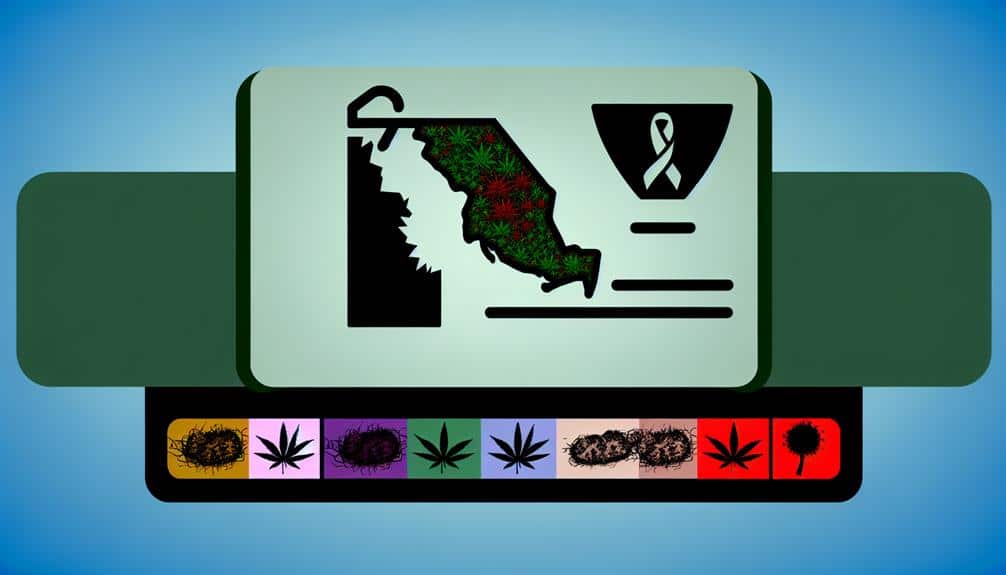
Before diving into the process of obtaining a medical marijuana card, it’s vital to know the qualifying conditions that make you eligible. In Delaware, the Department of Health and Social Services dictates these conditions. It’s not a one-size-fits-all situation; the state recognizes specific ailments that may benefit from medical marijuana use.
Chronic pain is one such condition. If you’ve been suffering from persistent pain that doesn’t respond to traditional treatment, medical marijuana could be an option for you.
It’s also important to note that the state defines chronic pain as pain lasting three months or longer, undeterred by standard medical treatments.
Mental health conditions also qualify. The state recognizes that certain mental health issues, such as post-traumatic stress disorder (PTSD), can’t always be effectively managed with conventional therapies. As a result, medical marijuana can serve as an alternative treatment option.
However, not all conditions qualify. It’s important to thoroughly research and consult with healthcare professionals to determine if you meet the criteria.
The Importance of Doctor’s Recommendation

Securing a doctor’s recommendation is a critical step on your path to obtaining a medical marijuana card. This important process underscores the significance of the doctor-patient relationship. It’s not just about getting a prescription; it’s about engaging in a thorough dialogue about your health and your specific needs.
The doctor’s role is essential. They’ll assess your medical history, current health status, and determine whether cannabis could be a beneficial treatment for your qualifying condition. They’ll also explain potential risks and benefits, ensuring you’re well-informed about your choices.
The legal implications of this process are fundamental to understand. In Delaware, doctors are legally required to provide documentation of their recommendation.
This certification confirms that you’ve undergone a detailed medical evaluation and that the recommendation for medical marijuana use is based on solid medical judgment.
Online Application Process Explained
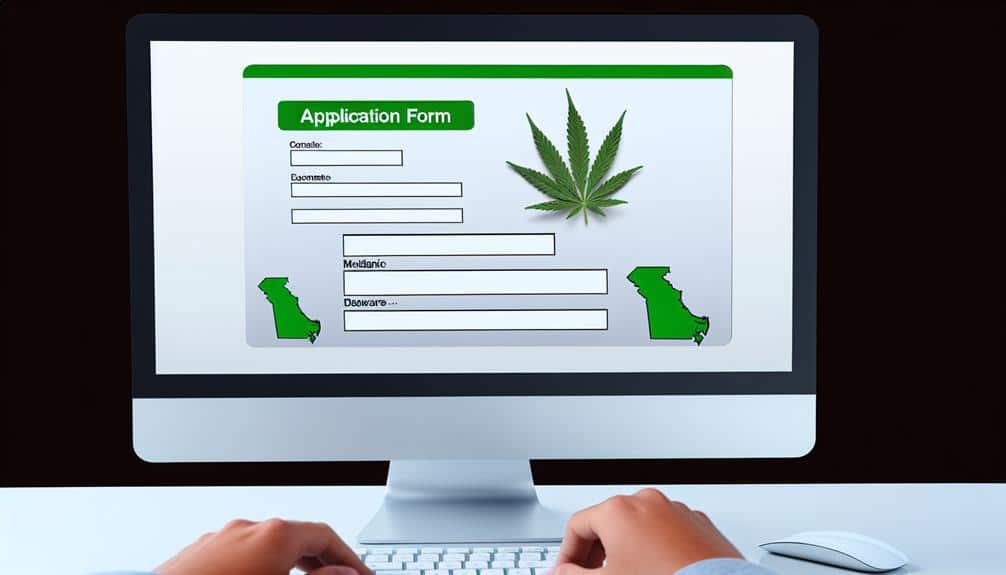
Once you’ve obtained your doctor’s recommendation, you’re ready to navigate the online application process for your medical marijuana card. The process is straightforward, designed with ease of use in mind to minimize stress for patients.
Your first step is to visit the Delaware Health and Social Services (DHSS) website. Here, you’ll find the Medical Marijuana Program link that will guide you to the online application.
It’s essential to safeguard your privacy during this process. Be sure to use a secure, private internet connection as it ensures confidentiality of personal and medical information.
The application requires certain details, including your personal info and information from your telehealth consultations.
It’s important to be accurate and thorough when filling out these fields. Any discrepancies could cause delays or even denial of your application.
Required Documents for Application
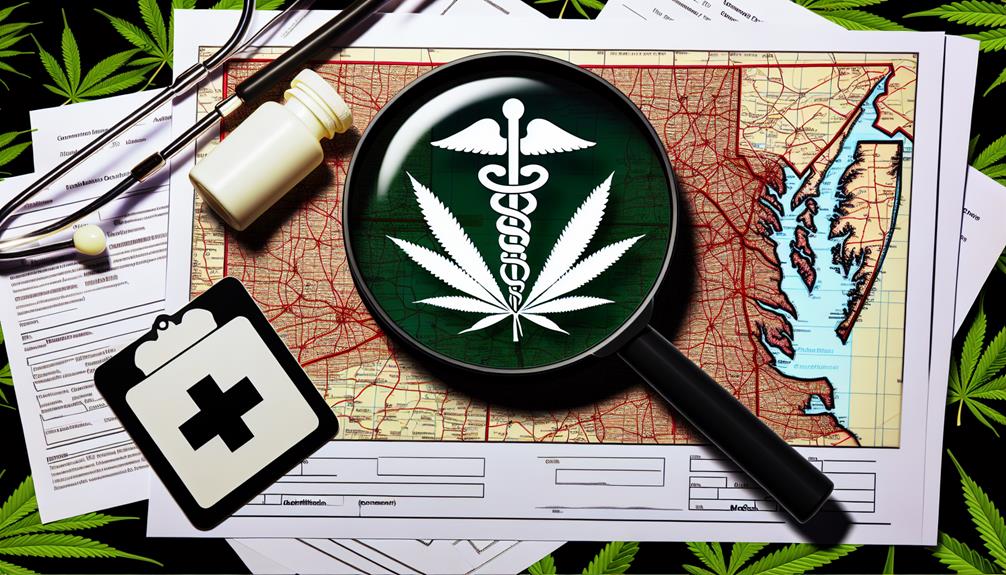
Gathering the required documents for your application is an essential step in obtaining your medical marijuana card. It’s important to ensure your application eligibility by having the right document types ready.
Firstly, you’ll need a written certification from a licensed doctor stating that you have a qualifying, debilitating medical condition.
You’ll also need proof of residency. This could be a Delaware driver’s license or a state identification card. If you’re under 18, additional documents such as caregiver’s ID and parent or guardian consent are required.
Next is proof of age. A birth certificate or any government-issued ID showing your date of birth will suffice.
Finally, you’ll need a recent, clear digital photograph of yourself similar to a passport photo.
All documents must be current and valid as outdated or invalid documents can delay your application or even lead to denial.
Diligence and thoroughness at this stage can save time and hassle later on. Remember, it’s not just about getting a card – it’s about getting the care you need.
Fees and Payment Methods
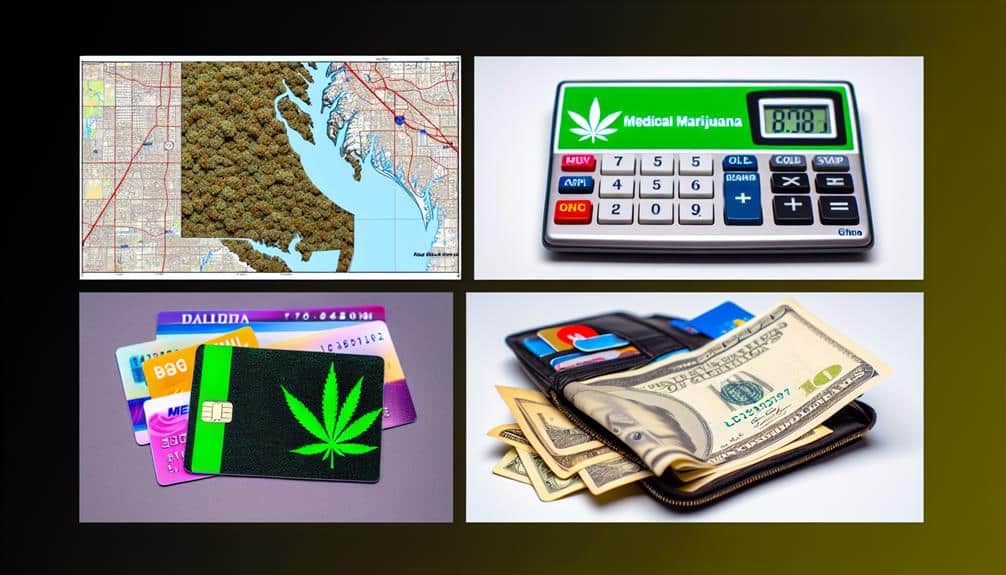
Having gathered all required documents, your next step is understanding the associated costs and how to handle payments.
In Delaware, the application fees for a medical marijuana card typically cost $125. However, you may be eligible for payment assistance if you’re experiencing financial hardship.
To apply for this assistance, you’ll need to provide evidence of your financial circumstances. This could include recent pay stubs, tax returns, or official documents related to government assistance programs. If your application for payment assistance is successful, you could significantly reduce your out-of-pocket costs.
The State of Delaware currently accepts checks, money orders, and debit or credit cards as payment methods.
Ensure that your chosen payment method has sufficient funds to cover the application fees. If your payment is declined, your application process may face delays or potential rejection.
What to Do After Approval
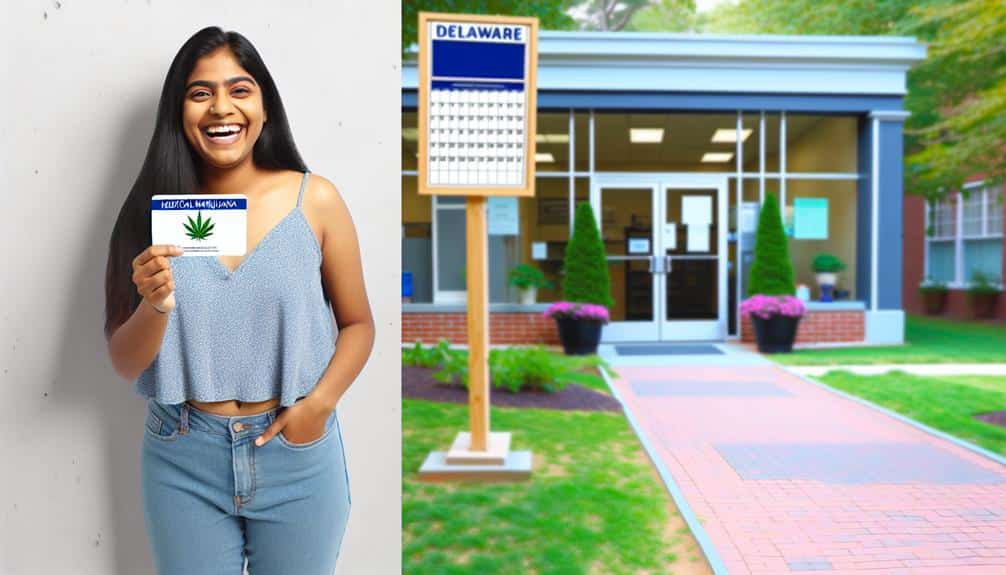
After receiving approval on your application and getting your medical marijuana card, there are some significant next steps to consider.
These post-approval steps are essential in ensuring that you’re using your newfound privilege legally and effectively.
Firstly, it’s important to understand card usage. Your medical marijuana card isn’t a free pass to use cannabis however you wish. Familiarize yourself with the rules and regulations in Delaware including where you can legally purchase medical marijuana and the allowed amount you can possess.
Secondly, educate yourself on different strains, dosages, and methods of consumption to find what works best for your condition. Not all medical marijuana is created equal. Some strains might be more effective for your specific symptoms.
Lastly, remember that having a medical marijuana card doesn’t exempt you from certain responsibilities. You can’t operate a vehicle or heavy machinery under the influence of marijuana, even if you’re a medical cardholder.
Also, using medical marijuana in public places is still restricted.
Renewing Your Medical Marijuana Card

Before your medical marijuana card expires, it’s vital to renew it to continue enjoying its benefits. The renewal timeline is straightforward and understanding it will help you avoid any lapses in your ability to access your medication.
You should begin the renewal process about 30-60 days before your card’s expiration date. This window allows ample time for processing and ensures that you won’t have any gaps in your medical marijuana usage.
Your patient responsibilities include maintaining an updated status with your healthcare provider. This means arranging a follow-up appointment to confirm your ongoing need for medical marijuana.
Remember, it’s your obligation to ensure that your healthcare provider completes the renewal documentation in a timely manner.
Next, submit your renewal application through the state’s medical marijuana program website. Pay the necessary fee and don’t forget to include an updated recommendation from your physician.
Finally, keep current with contact information on the medical marijuana program as this allows the state to contact you promptly if there are any issues or delays.
Understanding the renewal process and your responsibilities as a patient is significant in maintaining uninterrupted access to your medical marijuana. Be proactive, be informed, and take care of your health.
Conclusion
You’ve navigated the maze of Delaware’s medical marijuana laws, got your doctor’s nod, and survived the online application gauntlet. You’ve even parted with $125. Now, it’s just a matter of staying legal and keeping that card renewed. Because nothing says ‘I’ve got it together’ like responsibly managing your medical marijuana card. Who knew getting relief could involve so much bureaucracy? But hey, it’s a small price for such a big payoff.
If you want to learn more or have any questions, I invite you to visit Cannabis Docs of Delaware. We’re here to help! Feel free to give us a call at (855) 420-6797. Our friendly team is ready to guide you through the process and make your experience as smooth as possible.

